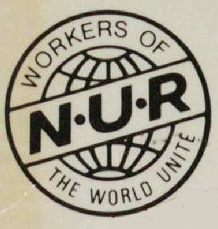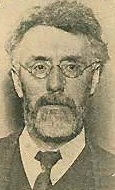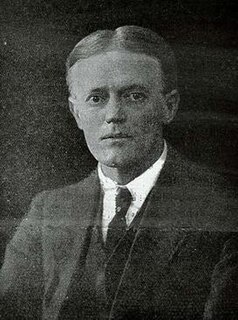Luke Henry Bateman (born 1873) was a British trade unionist and politician. He repeatedly narrowly missed out on election to Parliament.

The British people, or the Britons, are the citizens of the United Kingdom of Great Britain and Northern Ireland, the British Overseas Territories, and the Crown dependencies. British nationality law governs modern British citizenship and nationality, which can be acquired, for instance, by descent from British nationals. When used in a historical context, "British" or "Britons" can refer to the Celtic Britons, the indigenous inhabitants of Great Britain and Brittany, whose surviving members are the modern Welsh people, Cornish people, and Bretons. It may also refer to citizens of the former British Empire.
Born in Bristol, Bateman began working for the Great Western Railway, becoming a stationary engineman, and joining the National Union of Railwaymen (NUR). He slowly came to prominence in the union, serving as president of its Bristol Joint Committee, then as president of its Bristol and South West District Council. [1]

Bristol is a city and county in South West England with a population of 459,300. The wider district has the 10th-largest population in England. The urban area population of 724,000 is the 8th-largest in the UK. The city borders North Somerset and South Gloucestershire, with the cities of Bath and Gloucester to the south-east and north-east, respectively. South Wales lies across the Severn estuary.

The Great Western Railway (GWR) was a British railway company that linked London with the south-west and west of England, the West Midlands, and most of Wales. It was founded in 1833, received its enabling Act of Parliament on 31 August 1835 and ran its first trains in 1838. It was engineered by Isambard Kingdom Brunel, who chose a broad gauge of 7 ft —later slightly widened to 7 ft 1⁄4 in —but, from 1854, a series of amalgamations saw it also operate 4 ft 8 1⁄2 in standard-gauge trains; the last broad-gauge services were operated in 1892. The GWR was the only company to keep its identity through the Railways Act 1921, which amalgamated it with the remaining independent railways within its territory, and it was finally merged at the end of 1947 when it was nationalised and became the Western Region of British Railways.

The National Union of Railwaymen was a trade union of railway workers in the United Kingdom. The largest railway workers' union in the country, it was influential in the national trade union movement.
Bateman joined the Independent Labour Party (ILP) and also the Union of Democratic Control. [1] The ILP was affiliated to the Labour Party, for which he stood in Bristol East at the 1918 UK general election, taking second place with 42.8% of the vote. He stood again at the 1922 UK general election, increasing his vote share to 49.7%, and missing out on election by only 151 votes. [1] [2] He did not stand in 1923, but at the 1924 and 1929 UK general elections, he stood in Monmouth, taking around a quarter of the vote on each occasion. [2]

The Independent Labour Party (ILP) was a British political party of the left, established in 1893, when the Liberals appeared reluctant to endorse working-class candidates, representing the interests of the majority. A sitting independent MP and prominent union organiser, Keir Hardie, became its first chairman.
The Union of Democratic Control was a British pressure group formed in 1914 to press for a more responsive foreign policy. While not a pacifist organisation, it was opposed to military influence in government.
The Labour Party is a centre-left political party in the United Kingdom which has been described as an alliance of social democrats, democratic socialists and trade unionists. The party's platform emphasises greater state intervention, social justice and strengthening workers' rights.



